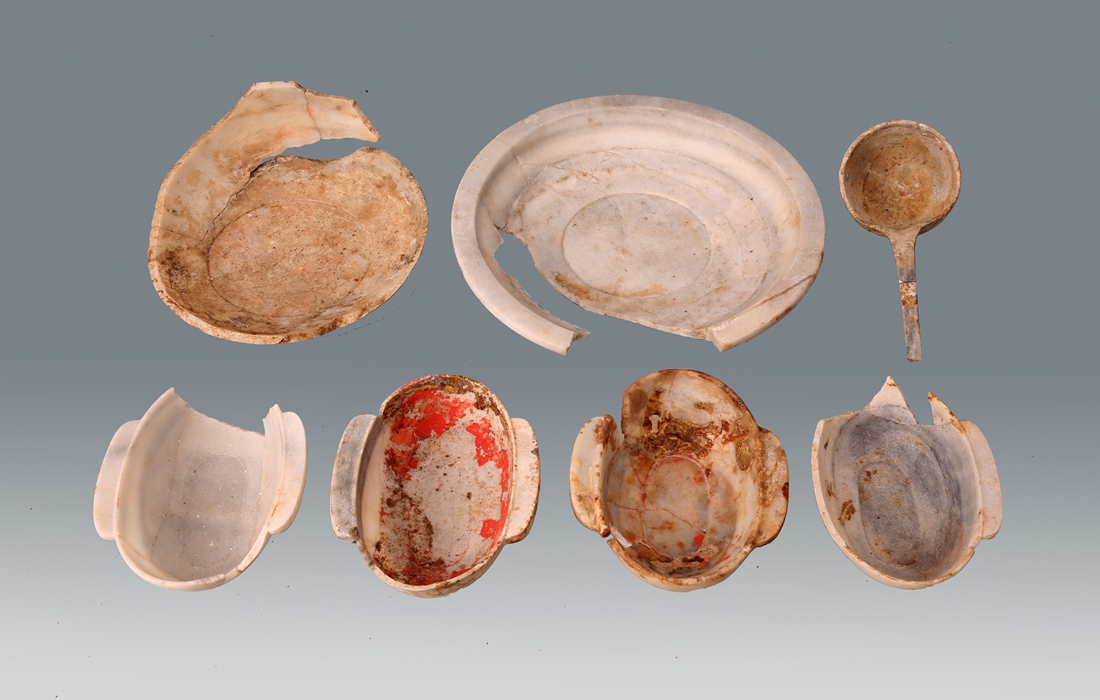
Photo shows the No 2 pit of Tushan Tomb and discoveries in Xuzhou, Jiangsu province. The tomb owner is a vassal King in the Eastern Han Dynasty (25 to 220). It is of academic value for mausoleum archaeology in China. Photo: National Cultural Heritage Administration
A local court in Hangzhou, East China’s Zhejiang Province on Tuesday sentenced two grave robbers to life imprisonment for stealing large numbers of precious relics of the Five Dynasties and Ten States period (AD907-979). It’s the latest move demonstrating China’s resolve to combat crimes involving cultural relics.
The Intermediate People’s Court of Hangzhou ruled that since April 2019, the suspects Jiang Minglei, Li Changwei had been robbing various tombs in Hangzhou.
In May 2019, they traveled to Lin’an district in Hangzhou from East China’s Fujian Province. They rented a house in Lin’an and bought tomb-raiding tools. The duo dug holes with the tools to rob the royal tombs of Wu Yue kingdom and stole a large number of precious cultural relics.
Located in Lin'an, the mausoleum of the Wu Yue kingdom in the Five Dynasties (907-960 AD) includes the tomb of Qian Liu, the first king of Wu Yue state, the tomb of Ma Shi, queen of the second kingdom of Wu Yue state, and the tombs of Qian Liu’s parents Qian Kuan and Shui Qiu.
On May 12, local police officers said at a press conference that they had arrested 39 suspects who had participated in digging and selling relics from the tomb of Qian Liu. They said they had recovered 223 precious relics.
The Intermediate People’s Court of Hangzhou said the ancient tombs the duo robbed have great historical, artistic and scientific value. Although the two suspects confessed their crimes and the stolen cultural relics were recovered by the public security department, it was not enough for them to be given a lighter punishment.
In August 2020, the Ministry of Public Security and the National Cultural Heritage Administration launched a one-year special campaign against crimes involving culture relics, focusing on theft of stone carvings from grottoes, looting of ancient cultural sites and tombs, and stealing ancient pagodas.
Since 2017, more than 3,480 cultural relic crimes have been investigated and more than 5,860 criminal suspects have been arrested. The authorities have recovered more than 40,000 cultural relics and 38 of the 42 fugitives wanted by the Ministry of Public Security for class A crimes have been arrested. Major breakthroughs were also made in the recovery of cultural relics lost overseas.
